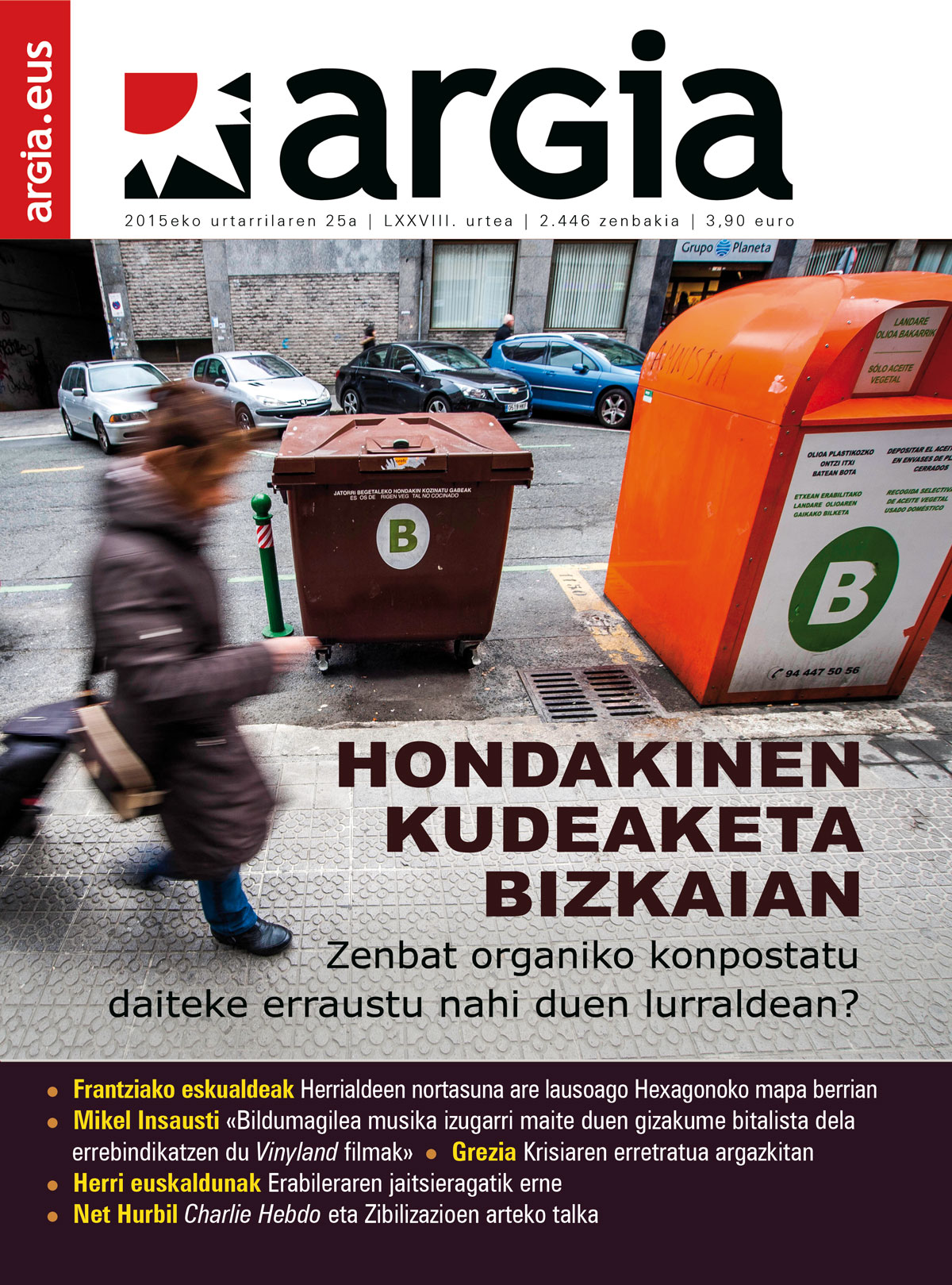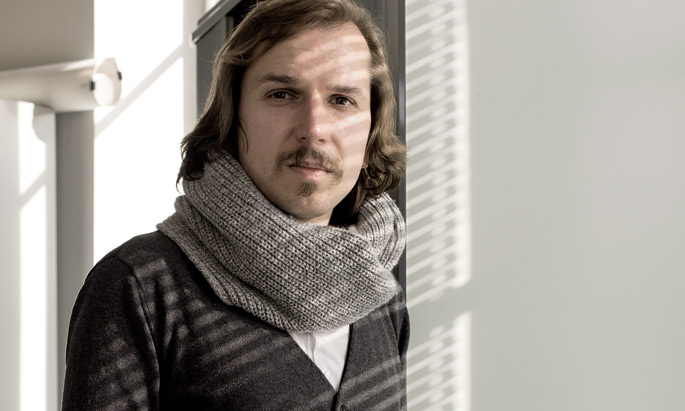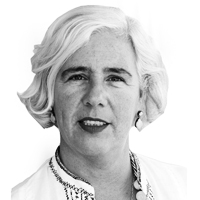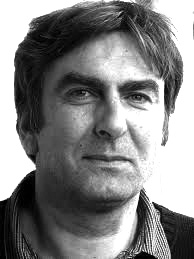And the Great War also hit Charlie Hebdo.
- Unfortunately, the desire of the cartoonist Luz, painted on the skin of Charlie Hebdo the week after the massacre will not be true: “Everything is forgiven,” says Mohammed, with the slogan “Je suis Charlie” in his hand. The struggle of the great powers to reorganize the geopolitical map of the world will soon bring new bloody episodes.
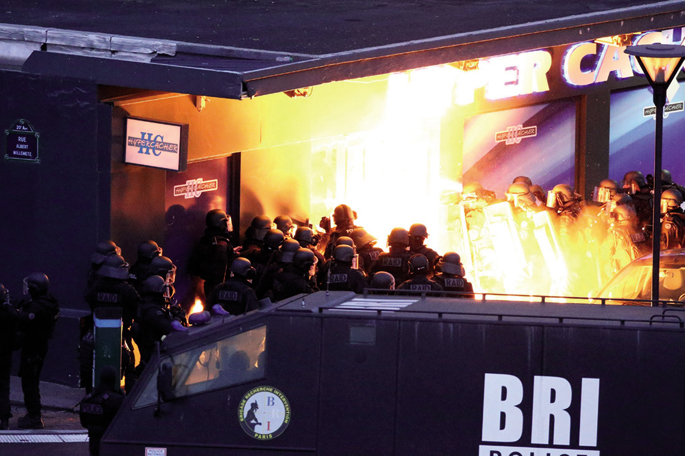
Bernard ‘Willem’ Holtrop, a 73-year-old cartoonist veteran, one of the founders of the satirical weekly Charlie Hebdo, was sour in the course of the protests that were being organized in Paris, in which many new friends who had left the massacre, enemies of all life, were giving him nausea. He ended, however, by accepting: “If they manifest themselves for freedom of expression, be welcome, of course.”
But the world’s leading leaders, approaching Paris on 11 January, did not join in screaming for freedom of expression. Following the massacre of the workers and those responsible for the shameless Weekly, the same jihadist group kidnapped a trade of ultramarines selling food for Jewish use and killed four clients of that religion. Since then, at least, they were drawings.
In the countries they send, they went to the precursors of the most massive demonstration that Paris has ever known, including those who have been censored, punished, imprisoned or even murdered by journalists of different political colours. It is pointless to mention a name to forget others, as well as Occupy Wall Street many others have pointed out the dark merits that many of whom François Hollande took from his arm in defence of freedom of the press and expression.
Noam Chomsky writes with caution: “We are all... fill in the blank” (We are all... fill the void). Compare the attack on Charlie Hebdo with which NATO bombed Serbian television in Belgrade on 24 April 1999.
The explosion of this missile, which caused the Serbs to be moved by radio and television, killed 16 people. NATO justified the attack by considering it necessary for Milosevic to sink into the sea. Spokesman Kennet Bacon said: “Serbian television is part of Milosevic’s murderous machinery, such as the army.” It was therefore legitimate to attack it.
The same was thought of by the leaders of Al Qaeda in Yemen or with their help the French jihadists who prepared the two massacres in Paris, beating within two days two of the prisoners they consider strategic: the Jewish community and the magazine condemned for mocking the images that are sacred to Muslims.
Amedi Coulibaly, an activist who died and fortified four clients of Hyper Casher, explained the logic of the war in all its crudety in the video that he recorded: “You do the role of victim as if you did not understand what is going on, while your coalition, you yourselves are heading in the head, continually bombing, killing gudaris and civilians... Do you have to decide what is going to happen in the world?” The artists and workers of Charlie Hebdo and the four Jewish street visitors who were shopping have paid a high price for their lives.
Saudi Arabia and Qatar
In Paris, something similar has already been seen. In the 1980s, the military patrolled at the train stations, closing slogans for fear of explosives, with stringent controls in the corners. Then again, the storms in the Middle East sent lightning from time to time to Europe. The author of some of these attacks is still in Lannemenberg prison, George Ibrahim Abdallah, who has not been expelled despite having served his full sentence under American pressure.
The context has changed radically since then. At the time of the post-Cold War era, the references and power relations were very different, the right, the left, the Soviets, NATO, Israel, the left Palestinians ... From Afghanistan, everything started to change, especially in Muslim countries, where violence continues to increase. Following the attacks of 11 September 2001, the geopolitical reorganisation of the large area between Pakistan and Nigeria began.
After the invasion of Iraq, which had nothing to do with the attack of the twin towers of New York, the Middle East and all of North Africa have turned upside down in 13 years. Paradoxically, despite all the invasions, the coups d’état and the wars being waged to improve the security of Europe and the United States, insecurity in Europe has only increased.
The last shot to date has been the explosion in the state of Syria. The day after the events in Paris, journalist Tomás Alcoverro, who knows the Middle East as well as few, said: “The jihadist threat: The Syrian war in the background.” Cooperation with the Syrian secret services is vital for the French, who control jihadists travelling on their territory. That is, they need Bachar Al Assad.
“With the war in Syria, the great war of this century, the dreadful Pandora’s box has opened, it will bring terrorist escalation worldwide and perhaps someday also the revenge of these mercenaries against their feudal lords, that is, against the criminal kings of Qatar and Saudi Arabia. So far, thanks to the enormous amounts of money at their disposal, the diplomacy bought with money and the continuous bribes, they have managed to avoid the outrage of the beasts they have fed. Especially Qatar has a glass roof.”
Alcoverro has not been the first to denounce the implications of Qatar, except in La Vanguardia (Barcelona), the kingdom of Barça that unites the colors of the Catalan flag with the advertising of Qatar.
In the same newspaper, the Bishop of the Central African Republic, the Andalusian Juan José Aguirre, declared last year publicly the belly pain he was producing to see advertising in Catar in the baskets of the football players. However, Qatar and Saudi Arabia are well-approved in the West that is so concerned about jihadist terrorism, and even more so, it can be said that to a large extent it is building the new map of the Middle East to its liking.
On 13 January the electorate of the French parliament sang the hymn of La Marseillaise, for the first time since 1918. The atmosphere before a great war could breathe those days in Paris and in the French State, all united and firmly against the remote enemy.
But this war is different. Cheaper oil is also a weapon, as are economic blockades, or cyber attacks. Alliances are very changing, mixed interests, intermingled networks of interests and competition.
There is a great deal of interest in many centres of command, even enemies, putting the clash of civilizations at the centre of the agenda, abandoning the debate on the neoliberal exit from the economic crisis. What have you heard of these days in inns, social cutbacks or Muslim immigrants?
Ezkerraren itxaropen zaharberrituekin ekin urte berriari eta alde guztietako kontserbadore eta inmobilistek aldarrikatutako Zibilizazioen Talkaren edizio odoltsuekin burutu, horra zein izan den 2015 honen patua. Disney World edo Port Aventurako txirrista erraldoietako batean... [+]
500 komikigilek manifestazioa egin dute Anguleman euren erretreta osagarriaren kotizazioa neurtzerakoan egin azken aldaketez kexu.
Lankideak hil dizkidate sarri. Beste askoren artean, lau aipatzearren, gogoan dauzkat Urkiaga 1937an, Galindez 1956an, Portell 1978an, eta Galdeano 1985ean.
2015a ez da baketsu esnatu gremiokoentzat, hor da Parisko atentatua Charlie Hebdo aldizkariaren aurka. Ofizio... [+]
After the attack on the satirical Semanary Charlie Hebdo and subsequent events, a calm and rational reflection is essential. The attack was a very serious attack on human rights: it sought to break the right to life, freedom of expression and freedom of the press. The first... [+]
Andy Warhol said everyone is going to get their own fame. He added that it would only last for a quarter. In the digital media world that we know today, anyone can fall into the trap that Warhol prophesied. Creating Facebook accounts, sending thousands of Tweets, using Whatsapp,... [+]
...I'm Charlie Hebdo, out of the attack on the weekly. I confess that the drawings of Cabu or Wolinski shaped my tendency to irony over time. Many of us owe the audacity or unconsciousness to insist on that blind intent to write and to think, without worrying about the... [+]
Gutxienez hamabi pertsona atxilotu dituzte ostegun gauean Pariseko hainbat puntutan, joan den astean Charlie Hebdo aldizkariaren aurkako erasoarekin zerikusia izan dezaketelakoan.
Charlie Hebdoren aurkako atentatuaren erreakzioek begi bistan jarri dituzte Europan une honetan nagusitzen ari diren joera politikoak. Bi mutur, eskuinekoa bata eta islamista bestea, aurkezten zaizkigu arrisku nagusitzat. Eta “segurtasunaren” mesedetan eskubideak... [+]
Frantziako Musulmanen Kontseiluak (CFCM) musulmanen aurkako 54 gertakari identifikatu ditu Charlie Hebdo aldizkariaren aurkako erasoaren ondoren.
“Je suis Charlie” ikurritza zabaldu da asasinatuekiko elkartasunetik. Agerraldiak sortu dira giro antiterrorista berri batean, adierazpen askatasunaren eta hildakoen oroimenaren alde. Alta, “Je suis Charlie” oihukatzeko ez dute aukerarik izan Egipton hil... [+]
Urtarrilaren 11n manifestazio historikoa izan zen Parisen, Charlie Hebdoren aurkako atentatua eta ondorengo egunetako gertakariak salatzeko: 1,5 milioi lagun batu ziren Frantziako hiriburuan eta Estatu osoan berriz 4 milioi.









